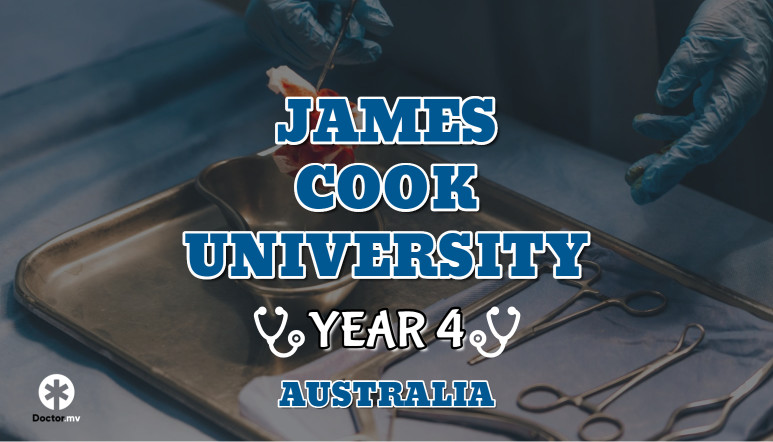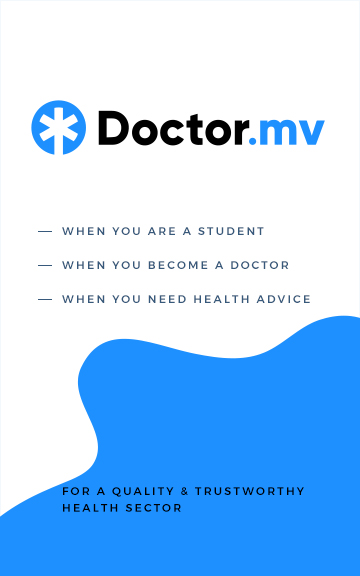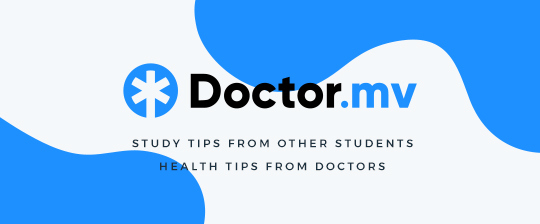I'm NABAHA MOHAMED WAHEED and this is My Medical Student Life

Nabeel Ibrahim
Published on: 08/02/2019
Fourth Year James Cook University Australia Fathmath Nabaha Mohamed WaheedUniversity
James Cook University (JCU)
Current Year
Fourth
Medical Specialty Interested in
The list is too long (and it’s a bit early to decide)
One Word that Describes You
Assertive
Most Intriguing subject in Medical School
Neuroscience
What was your path to Medical School like?
For as long as I can remember, I have always wanted to become a doctor. I have never been on the fence about this decision. Hence, all of my academic subject choices were directed towards entering Medical school. I chose Science in Aminiya School and Villa International High School; did exceptionally well in my O’levels and won 1st Place in the O’Level National Top 10.
Unfortunately, I had some issues in Year 11 and 12. As a result, the effort I could put in to my A’levels, was far from my best. Regardless, I won 4th Place in the National Top 10. I had therefore, missed out on getting the Presidential Scholarship. This was not what I had envisioned for myself. Hence, it was a challenge to pick up my game and get into to the Medical school I wanted to.
I did my research online, and with the support of my incredible family, without whom I cannot keep doing what I am doing now, applied to study Medicine at James Cook University (JCU), Australia. This was the only Medical school application I have ever lodged. Hence, the chances of getting in rested absolutely on this one application.
Next, I was advised by JCU to have gotten through the entrance written application, and was asked to prepare for an interview. After giving the interview, I was confident it went solid. A month later, in late January, I got an acceptance email with a conditional offer to study Medicine in JCU.
The day so far, has been the happiest day of my life. However, since the offer was conditional, I was asked to do A’level Mathematics which I had opted to not do in Year 12. I had to score an ‘A’ grade from it.
At this time, I was working as a Clinical Assistant in Indira Gandhi Memorial Hospital. As soon as I got the JCU conditional offer, I quit the job, found myself a Mathematics tutor (Muganthan Sir- to whom I am forever grateful for). I studied day and night to sit an exam which was only four months away. Mathematics, being not my strength, and studying the whole subject inclusive of both Mechanics and Statistics units, was by far the hardest I have tried to get into Medical school. Four months later, I sat the exams.
While I waited for the results, I got a job as an Administrative Officer at Department of Judicial Administration, Supreme Court of the Maldives. This was an absolutely new experience again, giving me a taste of careers outside of the Medical field. The presence of successful lawyers around me gave me some time to reflect on the opportunities out there for myself, and for a bit, I could absolutely see myself fit into the personality required to being a lawyer.
However, as soon as the Mathematics A’level results came, I knew that there was no profession that could outweigh my love for Medicine. I had gotten an ‘A’ grade in Mathematics as I needed to, and voila- the JCU offer to study MBBS was sorted. Once the fees/visa process was done, I flew to Australia in the hopes of becoming a doctor.
What was the biggest difference between your expectations of entering Med School when you were doing A'level, and the actual experience of being there?
Both my aunt and uncle are Pediatricians. Having seen them go through Medical training, I had never underestimated the effort that goes into becoming a doctor. Therefore the hard work that went into studying Medicine came as no surprise, and I was ready to put in the work needed.
However, it takes a while to get used to the new approach to studying in university, through that step up from high school to undergraduate study. There were ups and downs, trial and error, to evaluate how I learn best. Narrowing it down to one week at a time, I have fairly kept a routine of study so far.
How is your daily routine like?
My classes starts at 8 in the morning, which means I have to be out the door from home by 7:30 am. So, I wake up at 6:00 am (ideally), pray, get myself a good breakfast, dress and leave home by then. I make sure that I am always on time to class, because being late somehow ruins my mood for the rest of the day. Lectures run till lunch hour, and since I meal prep over the weekend, I mostly take my lunch with me to the university. After lunch, there are tutorials or clinical skills sessions, which run till about 5 pm.
By the time I get home, it is usually 5:30 pm, which is when I definitely need a quick nap to give myself a break from the day and be ready to study at night. After having dinner, I type summary notes for the classes that ran on that particular day and make sure all of the tutorials given that day are complete. I usually try to get a lot of work done at university, during the classes. So most of the time at home, I am looking through the study material for the second time. I believe that repetitive learning consolidates concepts in long term memory, which helps for any upcoming exams. If I have got pending notes to be done, or any assignments that due soon, I would edit my calendar for that week, and allocate hours to get the work done within that week.
In addition to that, I spend an hour to pre-read for the classes timetable for the next day and print any needed material for them. After about 4 hours of study at night, I pack up all that is needed for the next morning. Before bed, I speak to my family over the phone and watch an episode of ‘Friends’- and that’s my treat for getting through that one day!
How was your first year like?
I can confidently say that the first year of Medicine, the first year away from home, has so far been the hardest experience of my life. I had left the Maldives, my family and all things I was familiar with, to a country that is very different, to say the least.
Townsville, Queensland is a beautiful, peaceful, regional city in Australia. For the first time, when I flew here with my dad, I had the spirit of discovering new things, changing my life and all of that cliché ideas we think when moving abroad. I thought I was ready. He helped me settle down, taught me how to cook a couple of dishes/get around Townsville and left after a couple of weeks.
That’s when it hit me; I was nowhere near to adult. It was all too much. I deserted myself, barely came out of my room, I did not want to be here. All I did throughout the day was study, or try to study. I went to classes; but it was just that; I walked in and walked out as soon as the classes ended. I had no interest in making friends.
There was a small Maldivian community in Townsville then, which definitely helped create a little home away from home. The JCU Medicine team was very supportive as well; they understood that students go through this and made sure there was lots of student support available which I fully reached out to and is what got me through the first year.
In terms of studies, I did exceedingly well, but my mental health took a toll and I was unhappy. There were times when I wanted to immediately fly back to Maldives, and asked my parents to do so, but with their support I held on, and three years later, right now, with the grace of Allah, I could not be happier.
I have grown as an individual, met some great people, learned some amazing things both med and non-med. This experience is invaluable, it has given me perspective and the strength I need to get ahead in life.
What is the hardest part about the job you're preparing for?
The expected outcome of studying Medicine; the anticipated responsibility over someone else’s precious life, one day, would of course, be the hardest part. Studying while keeping this in mind, can be a strong driving force, to pay attention, to do well and to not take the opportunities for granted.
Name your favorite medical text book.
Guyton and Hall Textbook of Medical Physiology
Janeway’s Immunobiology by Kenneth Murphy
Clinically Oriented Anatomy by Keith L.Moore
What books, films or other media come to mind as having been particularly important to your field?
Honestly, none. I don’t watch Gray’s Anatomy or House, M.D., and reading has never been a hobby for me; I read to study, to learn. You don’t have to watch these or be a bookworm to excel Med school. It’s a stereotype I refuse to follow.
What is the most effective way to study in Medical School?
Being organized is key. Have a plan, make a schedule. Know what’s due, and when, well ahead of time. I think people who succeed in Medical school are not just the brilliant minded ones, but those that master the art of being organized.
Time management is a life skill, and Medical school is a very good place to learn doing that, if one is keen.
Do you need High grades to become a decent doctor?
I would like to believe so, because lets be real; you cannot take care of someone’s health without being prepared for it. To a certain extent, grades can be a reflection of how much we understand from what we need to know.
However, there are so many other qualities that goes into being a good doctor. Being empathetic, developing emotional intelligence, self-reflection and a genuine zest for this career; these are some inherent qualities that grades may not define, but just as important, in becoming a decent doctor.
Finally, what is the one tip/advice you want to give to our readers?
For current Med students:
Strike a work-life balance. Don’t make your job, your whole life. I genuinely struggle with this and I wish I was better. Constantly I feel like I am not living my best life in my 20s. I see heaps of Medical students around me, truly balance their med/non-med lives. I am working towards that and you should as well.
For everyone that’s interested in Medicine, or took the time to read this:
Dream big, and don’t let someone else’s underestimation of your capabilities, get the better of you. Believe in yourself, work hard every day, and there is nothing you cannot achieve!
The My Medical Student Life series was created for the sole purpose of helping medical students and aspiring doctors on their journey to become a successful Maldivian Healthcare Professional. Have a suggestion, idea or question? Email us.



Leave a comment
0 Comments